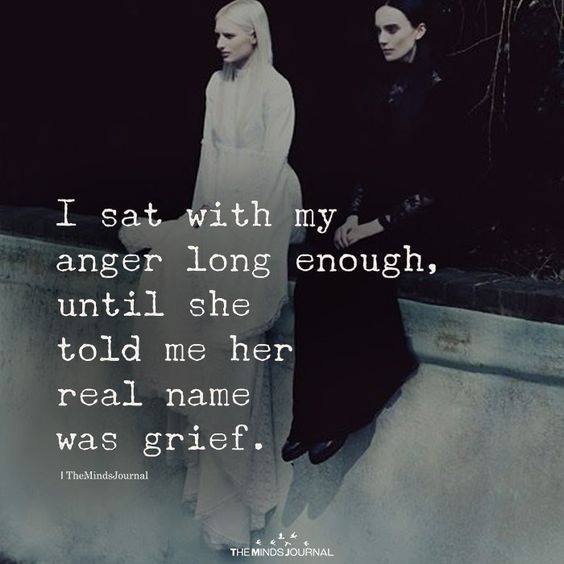They think they would feel differently and I should feel differently, but they really can’t put themselves in my place.
My heart is always heavy with emotion. I wake up and go to bed with emotions at the surface, where I am still fighting to hold them in. I set aside controlled releases of my feelings, at particular times and places, like in the shower, alone in the car driving, visiting my son at his grave site. The emotions vary between guilt, shame, anger, and blame. My therapist and survivor’s support group helped me understand that these are common emotions for a parent who has lost a child. They also shared that there is an increased propensity to swear and yell which I feel at liberty to do.
When no one is around, sometimes I scream and pound my fights. Sometimes the emotions are uncontrolled and just come out.
One evening after my daughter came home from work, we sat outside with the dogs in the backyard to talk and be together. These days it usually is with a glass of wine in hand. She had had a therapy session earlier in the day. We talked about the anger we feel. She shared she feels like hitting somebody or something. I am not angry at my son because he was the one with the mental illness. I am mostly angry at God and the world for letting this happen to my baby boy.
My son was loved by so many whom he took in with open arms and treated with generosity. He had a genuine concern for others; he consciously worked hard to be a compassionate listener and to be there for his friends. He was a great person for this world so why the hell was he dealt this hand? He deserved so much better.
I cringe when someone I know approaches me with cliche greetings. I also cringe when someone says, “I am praying for you.”
The things that may seem small to people who don’t know what it is like to lose a child are taking a toll on us. Those who don’t follow through when specifically asked to do something. Those who think they understand what I am going through — those who don’t think before they speak and say insensitive things. Keep in mind, the things you say might not be insensitive in a normal situation but can be to those who have lost a young person in their life. Previously hearing about your children’s accomplishments, your vacations, your latest purchases, house remodel, minor life obstacles, and so on, would be normal inviting conversations. Participating in this small talk is hard. I have to work hard to get myself in a place to join in these previously normal conversations. I cringe when someone I know approaches me with cliche greetings spoken in a happy tone (like nothing has happened) such as “How are you?” “Are you having a nice day?” “How was your weekend?” “Enjoy the rest of your day.” There is no real enjoyment anymore; the things we do that should bring enjoyment are now muted because there is this great hole in our lives. I also cringe when someone says, “I am praying for you.”
I feel it is something others need to do for themselves, so they can feel good, like they are helping me. I feel it does nothing for me and everything for them.
My therapist said that it is common to test or lose your faith after such a loss. I grew up Catholic, and my children were baptized as Methodist. While both my husband and I have the Christian faith, we were not big churchgoers after the birth of our second child, mainly because it took so much time on an already short weekend that was filled with kids’ activities and basic chores. Getting ready, driving to church, attending the service, socializing, and then driving back home took half of the day. We treasured our weekends because we both had long work weeks.
My mom had a strong faith, and so did I at the time. We prayed a lot, and so did many others: our faith community, family, and friends. She died at the age of fifty-one, the day before my wedding.
My son’s best friend died at the age of 22, almost two-and-a-half years before my son died. I had a whole congregation praying for him for the last six months of his life.
My dad always told me he was praying for my son after his friend died, as my son was struggling to find his way. All of the prayers did not change the outcome of these shortened lives.
After my son’s death, people tell me they are praying for my son, praying for me, praying for our family. Why? My son is already dead. At this point in my life, I no longer view it as a courteous thing to do. I feel it is something others need to do for themselves, so they can feel good like they are helping me. I feel it does nothing for me and everything for them.
They think they would feel differently and I should feel differently, but they really can’t put themselves in my place.
God failed my son, abandoned his family, and everyone who knew and loved him. Since I come from a family with faith, it is hard for them to hear my anger against God and why I do not believe in prayer. They think they would feel differently and I should feel differently, but they really can’t put themselves in my place.
I felt such relief when one of my family members told me that God deserves all of my anger and contempt. I appreciated not having to fight to have the right to my feelings of anger. I am wondering: Why do they not feel anger and contempt at God too? After all, they have lost a grandchild, nephew, and cousin.
Someone was offering to be with me on my terms and was offering (acceptance of the anger) what I needed.
There are heroic, unselfish gestures that people have done, such as being with his father, sister, and me in this difficult state. One of my family members gave me permission to scream and lash out. “We can take it,” she said. Relief is how I felt when I heard this. Someone was offering to be with me on my terms and was offering (acceptance of the anger) what I needed. That is how I felt when I heard this. Relief.
This story is my journey. Other parents will have a different experience. I appreciate when our support universe acknowledges what we individually need.

